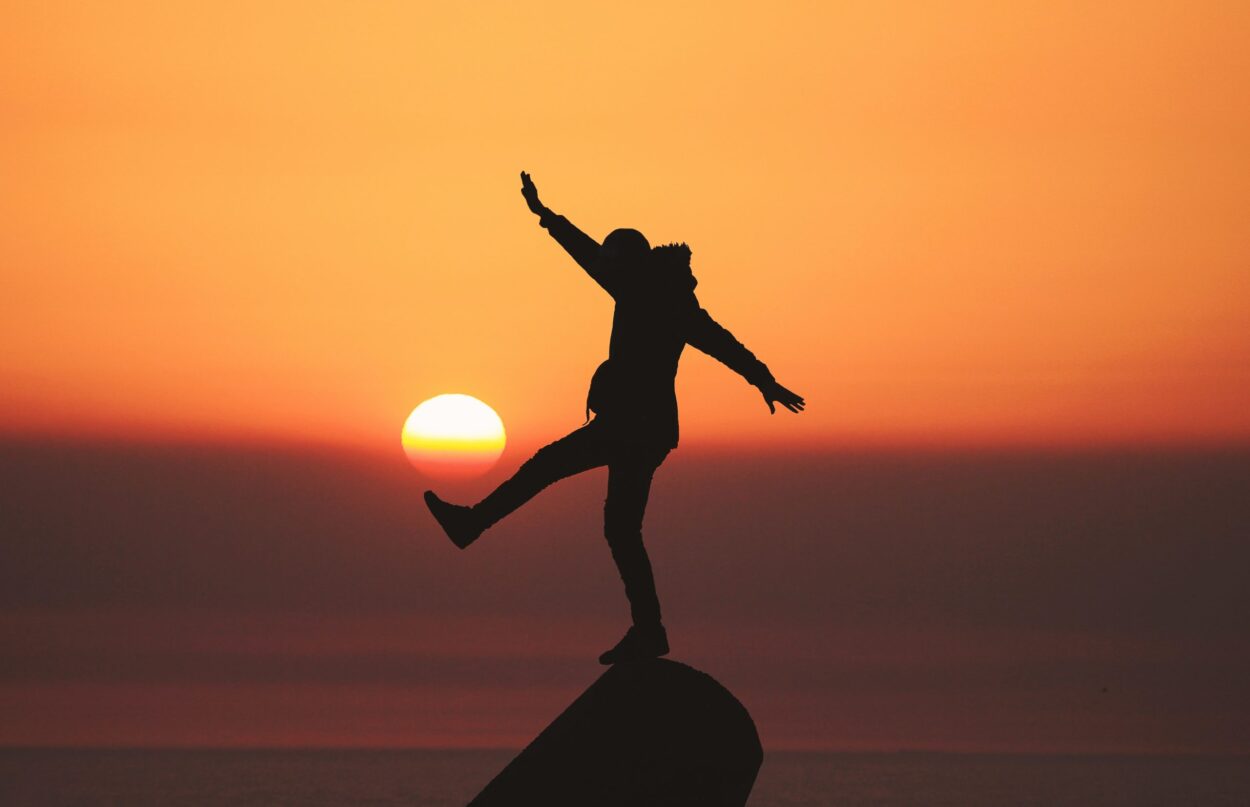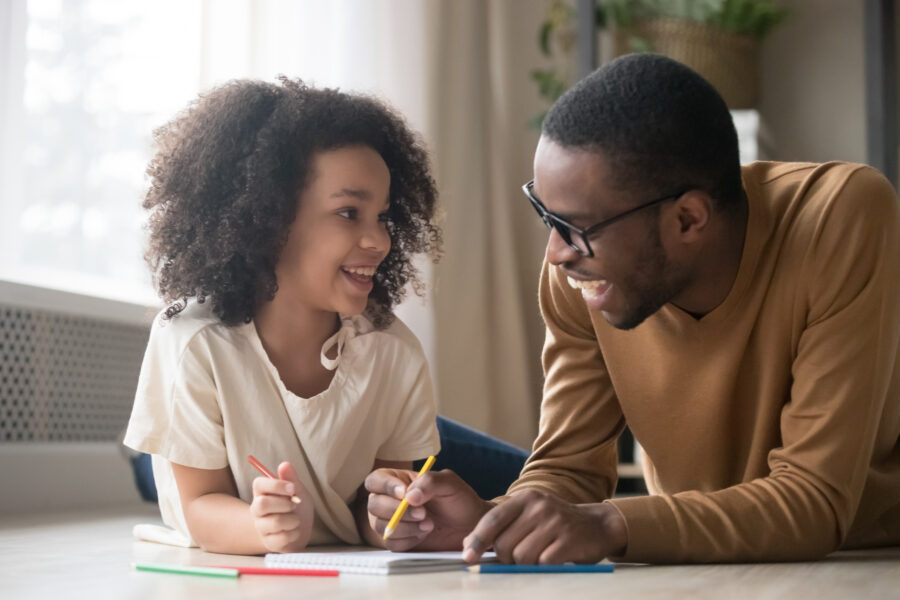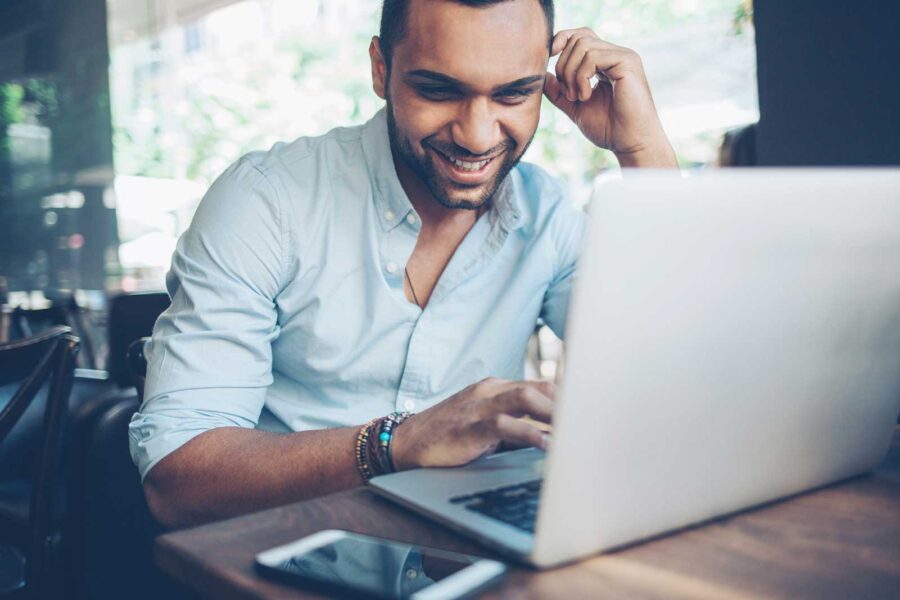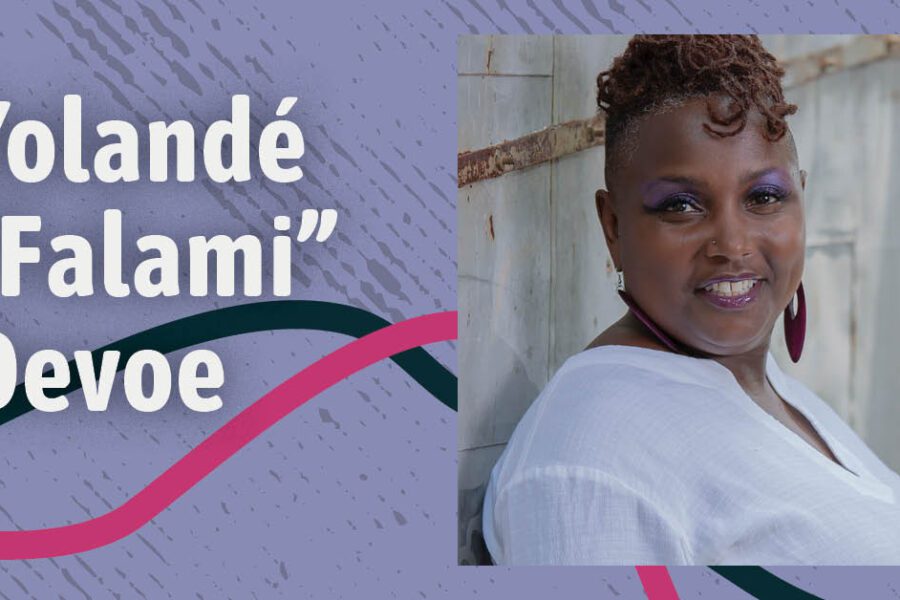As coronavirus spreads around the globe, as shelter-in-place orders go into effect across the U.S., and as the news fills with stories of illness and desperation, it can be hard to take care of our own well-being. Dr. Susan Dreyer-Leon, Department Chair of the Education Department at Antioch University New England, suggests that being mindful can help us maintain our own mental and emotional equilibriums, giving us the fortitude and composure to help those around us. Here she shares nine strategies to remain mindful during the pandemic. And she suggests that we keep them once it’s over because, as she explains, “actually, this is how it always is—unstable, uncertain, ever-changing.” These approaches can help.
Pause and tune into your senses.
Drop out of your stream of continuous thinking and connect to sound, to the feeling in your feet. Leon explains that while “It’s not hard to do—and it can often have a surprising impact—it’s just hard to remember to do.” How do you do it? “You take a minute to drop out of the continuous stream of thinking in your head and arrive where you are. It can just be taking a couple of deep breaths. Feeling your feet on the floor. Looking around you. The sun on your face. The sensations in your hands.” And this can have a real benefit, because “anytime you can reconnect with your senses and drop out of the continuous stream of thinking, it can be a relief to your nervous system.”
Do one thing at a time.
Why? The human mind “doesn’t really multitask,” Leon explains, and “as our attention gets more and more fractured, we feel less grounded and more frantic. So when the times around us already feel a little frantic, if we’re trying to feel a little more peaceful inside, then it makes sense to try to control what we can control, which is trying to do what you’re doing and then finish it—then do the next thing, and finish it. It just makes you feel better… Just do the dishes, then just answer your email, and try not to check your email and check your newsfeed and send texts at the same time. Sometimes life intrudes, but often it’s a choice, and we’re in the bad habit of doing multiple things at once.”
Try a little mindful movement—yoga, tai chi, or a mindful walk.
“Many people are drawn to movement and exercise because it takes them out of the stream of thinking and gets them into their body,” says Leon. With mindful movement “you’re just making that conscious. Rather than hopping on the exercise bike and continuing to ruminate and think about all your thoughts, you consciously focus on your body.” She recommends concentration-intensive exercise “where you’re really just trying to think about like, ‘How do my muscles feel right now? How does this feel in my back? What’s going on in my hamstrings?’ That kind of stuff really helps us to stay in the senses and to drop out of that stream of thinking.” Or you can take a mindful walk, “paying attention to what you see and hear and smell, and really taking in your environment around you, as opposed to walking and being lost in thought.” Taking it deeper, you can “concentrate on the sensations in your feet and the feel of the mechanism of walking and the air on your face.”
Grab a little time in nature.
“You don’t have to be on some remote desert island,” says Leon. “I saw a study recently that said that people have better well-being if they can see a tree through their window, versus people who can’t. So it can even be tuning in to the sound of the rain or the sound of the wind.” This, she explains, is because “nature invites us to have a sensory experience, nature invites us to rest in the senses. There’s something fundamentally pleasing for us to reconnect with the nature that we’re a part of as opposed to the human-built environment. Being in nature literally lowers people’s blood pressure… People often experience it as a tiny moment of relief.”
Connect with other people.
This especially important today, because “when we are in close quarters with people for long stretches of time, we can stop seeing them, stop really hearing them.” So Leon recommends that we “Slow down and listen from the heart when someone is talking to you. When we practice giving them undivided attention, good eye contact and stop running our internal dialogs while they are talking, we can find a surprising reconnection that doesn’t require them to change anything!”
Watch your media diet—and consider a news fast.
Leon warns that “our nervous systems are truly not designed to process the suffering of the whole world simultaneously.” Recently she tried “two full weeks, no news and no social media. And my anxiety level went way down. It was really interesting. In particular, the urge to continuously check what was happening.” Why might news and social media cause anxiety? “I don’t think we’re well-designed to take in all that information in that really fast way. Like, cute cat video … friend’s dad has cancer … the appalling thing that happened in a Syrian refugee camp … cute cat video. That kind of emotional whiplash, I’m not sure that our nervous systems are really designed for that.” If you’re feeling overwhelmed, you might consider a news fast.
Practice Compassion and gratitude.
In this moment, “our interconnection as a species and with the natural world could not be more clear.” So Leon suggests that we “offer compassion to those who are suffering and gratitude for everyone who is trying to help. When you feel overwhelmed by the suffering, turn to compassion. Compassion is defined as a ‘quivering of the heart’ in response to the suffering of the world. It has a quality of standing strong with others in their suffering rather than being overwhelmed by fear. When you are feeling stronger, identify all the things for which you can truly be grateful. Including for the caregivers, friends and family, food, good material circumstances.”
Try turning toward fear instead of running away from it.
Leon explains that “part of what we’re trying to do in mindfulness is to learn to welcome what’s happening. The Buddha talked about how his bottom line was ‘the truth of the way things are.’ So if the way things are is, this is scary and I’m frightened, if we can be with that, if we can turn to that, sometimes it is less stressful than trying to deny it or turn away from it. It has to be done with a lot of gentleness. We’re not talking about forcing anything. It’s just acknowledging the feelings that are there.” She suggests that if you want to try this it might even feel “really good just to say out loud, ‘Gosh I’m really scared, and I don’t want to get this thing, and I don’t want to die.’ Just getting that out can help us to work with it in a different way. I feel like sometimes when things lurk in an unexpressed way they create actually more anxiety.”
Try meditation.
Even a small amount can help. Prof. Leon suggests “5-10 minutes a day, if you are new to it.” She recommends guided meditations from paid services like Ten Percent Happier, Insight Timer, Calm.com or Headspace but also the many free offerings on Youtube and at Dharmaseed.com. You can also find live meditation or teaching sessions—during this time there are many of these being offered, and this live experience can be really powerful. She also recommends books on meditation or mindfulness, especially Real Happiness by Sharon Salzberg and Wherever You Go, There You Are by Jon Kabat Zinn.
Susan Dreyer Leon, EdD is the Chair of the Education Department at Antioch University New England. She is a former alternative public high school teacher/leader in New York City and Vermont, and her special interests include the development and support of equitable, democratic and joyful schools, and mindfulness and education. She teaches primarily in the Experienced Educators program, which offers Master’s degrees and Graduate Certificates for working educators in a variety of unique concentrations including Mindfulness for Educators, Trauma-Informed Teaching, Humane Education, Nature-Based Early Childhood, Reggio Emilia, Place-Based Education, and Problem-Based Learning. Most programs are offered fully on-line with optional summer residencies in July.




